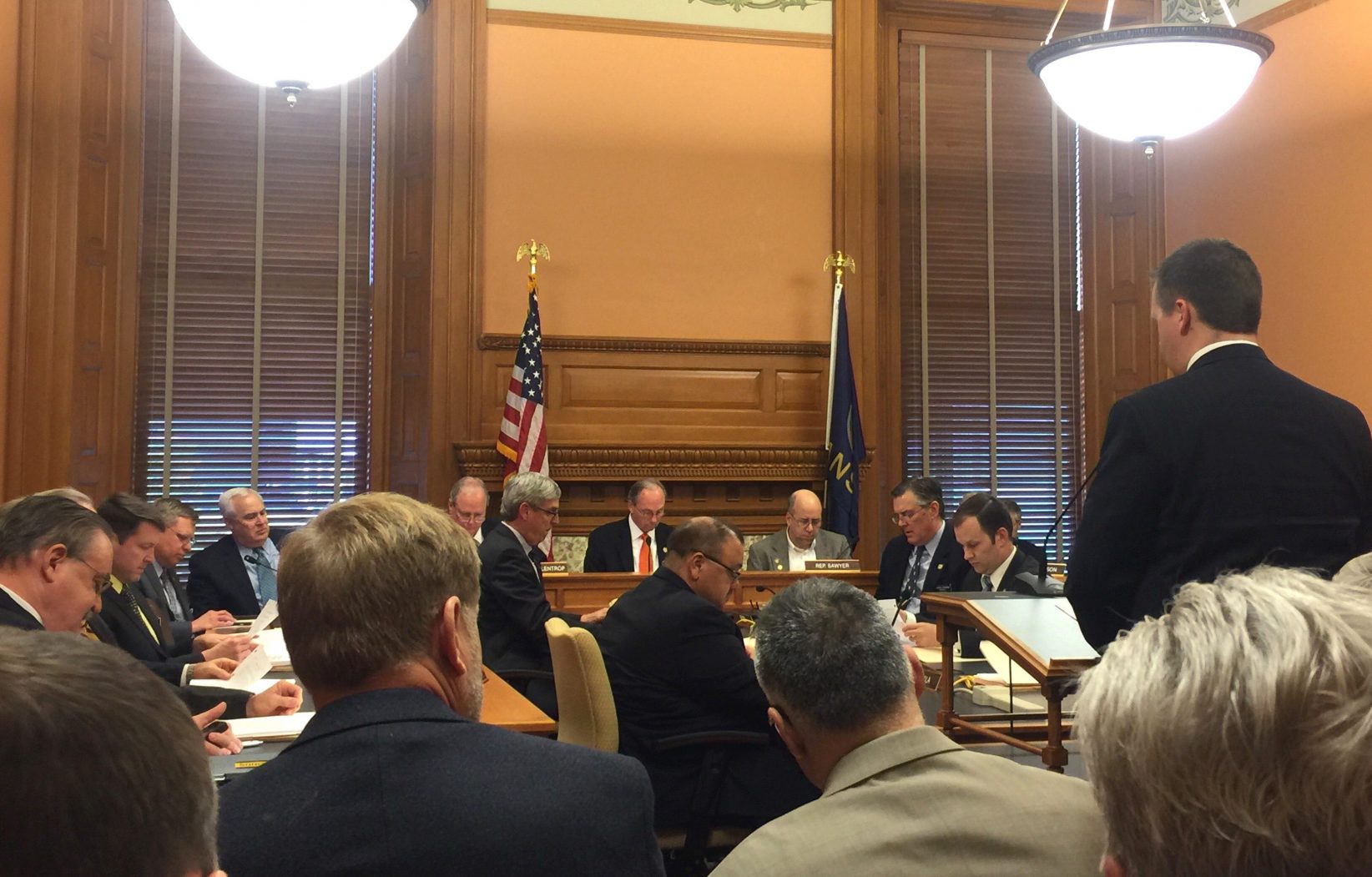It appears area entrepreneurs and business leaders are unanimously agreed on at least one thing: Kansas’ Angel Investment Tax Credit program must endure.
About a dozen people converged on Kansas Legislature Wednesday to voice unopposed support of the program, which has spurred significant growth in Kansas’ tech and bioscience sectors.
The program — as represented in House Bill 2405 — offers accredited investors a 50 percent tax credit on an investment of up to $50,000 in a Kansas business, helping to mitigate risk and encourage investments. The $6 million annual program has attracted hundreds of interested investors and ventures applying for the credits.
As a result, the program grows Kansas jobs and enables the state to attract outside businesses, KCnext president Ryan Weber said.
“The angel investment tax credit is a competitive advantage for the state to attract innovative companies and people,” Weber said in testimony to the Kansas’ committee on taxation, which is responsible for forwarding HB 2405 to the Kansas House floor for a vote. “Without this credit, Kansas will lose this advantage and leave entrepreneurs with one less reason to locate in Kansas.”
Since 2006, the program has helped 298 companies raise more than $342.9 million in capital, which has allowed the firms to create 1,188 new jobs, according to the Kansas Department of Commerce. The department also reports that the tax credits have helped create 549 jobs in the last four years.
But while popular and effective at growing jobs, the program’s future is uncertain. Kansas faces a projected $600 million budgetary shortfall as a result of the legislature’s slashing of personal income taxes in 2012 and 2013. Legislators in the 2016 session now face an array of tough choices on what state programs and services must be slashed or preserved to accommodate the income tax cuts.
Melissa Roberts, marketing director for the Enterprise Center in Johnson County, said her organization’s angel investment arm, Mid-America Angels, has tapped the credits with nearly every deal it’s made. Those deals include some notable exits and high-profile startups in Kansas City, including Aratana Therapeutics, Rush Tracking Systems, EyeVerify, Zave Networks and more.
While the program has helped the State of Kansas and companies grow, Roberts said another group has benefited the most.
“The real winners have been Kansas taxpayers — companies benefiting from this program have had over a $738 million economic impact, created over 1,000 new jobs and preserved over 350 existing jobs, Roberts said Wednesday. “To lose this credit would be devastating to our state’s active early-stage investment community and would jeopardize the ability of Kansas companies to raise the capital they need to grow.”
The hearing Wednesday drew only proponents — and no neutral or opposed parties — of the measure, which would extend the sunset of the tax credit program to 2021. Roberts added that she felt testimony on the program was well received and is feeling optimistic that legislators will extend the sunset.
Others testifying in support of the bill included:
- Wayne Carter, CEO of the Kansas City Area Life Sciences Institute
- Dennis Ridenour, CEO of BioKansas
- Kevin Sweeney, chairman of the board for BioKansas
- Tammie Wahaus, CEO of ELIAS Animal Health
- Nick Franano, CEO of Metactive and Flow Forward Medical
- Chris Cardinal, CEO of Welltodo
- Chris Cheatham, CEO of ClaimKit
Legislators must make quick work with the bill as the state prepares for its “turnaround” period in about three weeks. The turnaround is the first major deadline for the legislative session in which all bills must be passed from their originating chamber to the opposite body — such as House bills heading to the Senate or vice versa.
The tax credit program is now accepting applications from eligible companies for its final year under the current bill. To apply, a business must have less than $5 million in revenue, be in operation for less than five years and have a proprietary technology or product. Application and registration fees cost $300.
To illustrate how the program works, let’s use a fictional example.
Jane from Startland News is raising $500,000 in financing and has two angel investors that want to complete the round with two $250,000 investments. Jane applies for and is allocated $100,000 in angel tax credits from the Kansas Department of Commerce. That allows Startland offer each investor $50,000 in tax credits, knocking down their investment cost to $200,000.
The investors each write Startland a check for $250,000 and Jane files a report with the Department of Commerce, which sends each investor a certificate entitling them to a $50,000 income tax credit. The credits mitigate risk for an investor, encourages investments and helps Startland accelerate its business.
Chairman of the Kansas Committee on Taxation Rep. Marvin Kleeb, R-Overland Park, and committee member Rep. John Edmonds, R-Great Bend, both did not respond for comment on this story.




































